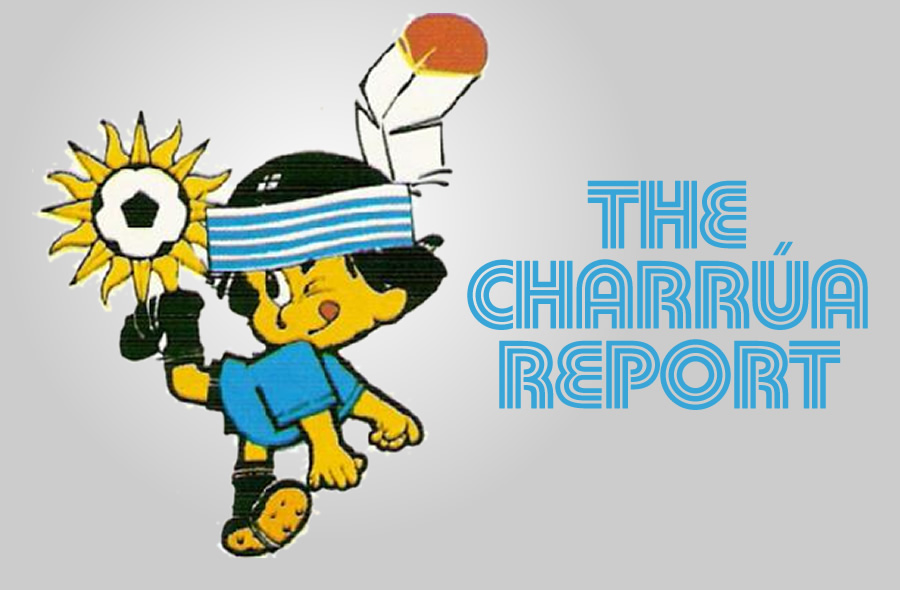Hello fans! Finally, the 2015 Copa América is here, so let’s talk about Uruguay’s chances!
I want My Babyback Babyback Babyback
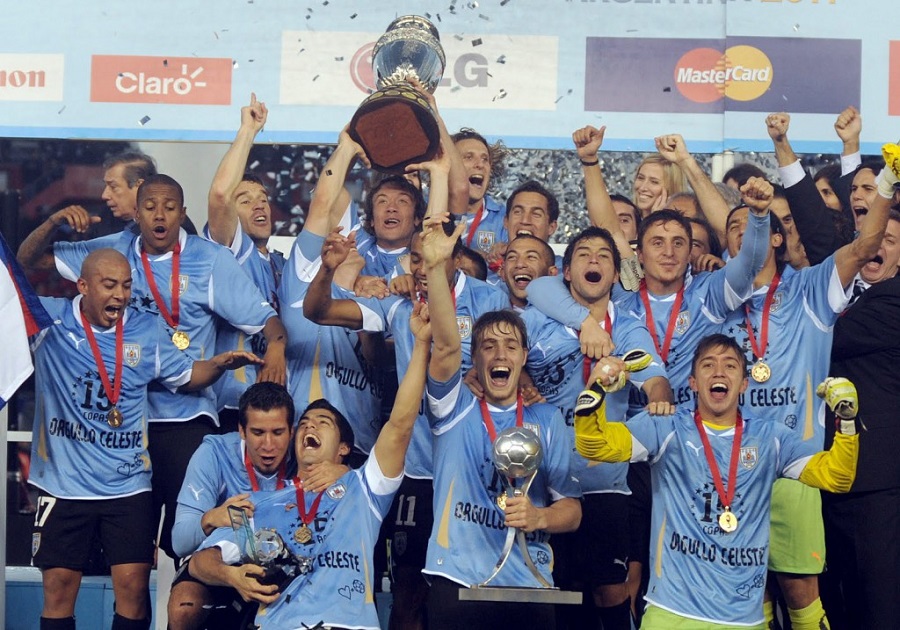
The 2015 Copa América is being played in Chile. As usual, all 10 South American nations are represented (sorry, Suriname), plus 2 random invitees brought in to even out the group stage numbers. This time around it’s frequent guest Mexico and first time participant Jamaica (I guess Canada was busy?). The teams were drawn into 3 groups of 4 teams, headed by group seeds Chile, Brazil and Argentina (because why would you make the all time leader in wins and defending champion a seed?). Group A consists of host Chile, Mexico, Ecuador and Bolivia; group B includes Argentina, Uruguay, Paraguay, and Jamaica; and group C is made up of Brazil, Colombia, Peru, and Venezuela. The tournament begins on June 11th with the hosts taking on Ecuador, and concludes on July 4th (how patriotic!).
The big favorites here are the usual suspects: Argentina and Brazil, with Chile getting points for being the home team. Colombia has a strong team but a reputation for choking when it counts (see their match against Brazil in the last World cup), so we’ll see what they have to offer. Mexico is one of the region’s better sides but they don’t always bring their best to this competition And Uruguay… well, the defending champions (and 15 time winners) always start slow and get better along the way, and somehow always seem to end up as one of the last four teams standing. The competition format helps out, as all but 4 of the teams move on to the playoff round, but this time around they must cope with a huge loss, as all-world forward Luis Suárez is still serving his suspension from the World Cup. Uruguay knows a repeat title will be a tough order; their goal is to advance far enough in the competition to minimize the impact of the Gunslinger’s suspension on the World cup Qualifying tournament (if Uruguay makes it to the final four, he will only have to serve two more games).
And who has Uruguay brought along this time? Well, the defensive side of the field is solid: all 3 keepers (Fernando Muslera, Martín Silva and Rodrigo Muñoz) have been playing with the national team for a while now and were part of the 2014 World Cup squad. The backline is established as well, with Atlético Madrid’s José Giménez and Diego Godín starting in the middle and 2010 World Cup veterans Jorge Fucile and Maxi Pereira on the wings. Even the backups are first class: Álvaro Pereira scored two huge goals early on during the last tournament, and Sebastián Coates was named the top young player then. Relative newcomers Gastón Silva and Mathías Corujo provide depth; both have played well in the last few friendlies.
The midfield is again manned by veterans of the Tabárez process: Nicolás Lodeiro, Cristian Rodríguez, Álvaro González, and the ageless Egidio Arévalo Ríos. All 4 of those guys figure to be starters, backed up by Giorgian De Arrascaeta, Carlos Sánchez, and Guzmán Pereira (because this team didn’t have nearly enough Pereiras). Again, it’s a veteran unit that has proven itself at the highest levels of competition, with enough new faces thrown in to insure the team against complacency and the adverse effects of aging. The team will miss injured star Gastón Ramírez but should do well enough with Lodeiro at the helm.
Up front is where things get interesting: Suárez is out, so the team will rely on a couple of players that, fairly or not, have been branded as disappointments: Abel Hernández and, of course, Edinson Cavani. This is Cavani’s great chance to show the world that he is, in fact, a world class forward, and that he can carry a team far into a major tournament. He’s one of the top 10 forwards in Europe, and already the 8th best scorer in Uruguayan National Team history; he scored huge goals in the last World Cup qualifiers and the 2013 Confederations Cup; now he must show that he can step out of the shadow cast by Suárez and Diego Forlán. Hernández, on the other hand, may have run out of time, as the other starting forward spot may have already been claimed by Ligue 1 killer Diego Rolan. Rolan has been fantastic over the lat few years, first with the Uruguayan youth teams and Defensor Sporting, then on the main National Team and at Bordeaux. He has a chance to be the tournament’s revelation; we’ll see how he responds. When Tabárez needs a change of pace up front, his options will be process man and world cup veteran Christian Stuani, coming off his best ever season in Spain’s La Liga, and young hotshot Jonathan Rodríguez, who in just a few months has made the jump from sometimes-starter at Peñarol to next-great-thing at Portuguese power Benfica.
This past weekend Uruguay played its last preparation friendly, a home game against Guatemala. The Celestes came out firing on all cylinders, going in front after just three minutes thanks to Rolan. Then it was Cavani’s turn to shine, as the striker collected goals in minutes 19 (this should have been Rolan’s second of the game) and 32 (penalty kick). Cavani has now scored 28 goals with the Celeste, tied for 4th most in history. De Arrascaeta and Hernández added second half goals for a heartening 5-1 thrashing. Uruguay were thoroughly superior and showed excellent form before boarding the flight to Chile, regardless of the strength of the opponent, and the attacking duo of Cavani and Rolan did what they’re supposed to do: score goals. It’s going to be interesting to watch. Uruguay has a good enough team, but we’ll see if they can adjust to not being able to rely on the world’s best insurance policy. The action starts this week and I’ll be here to tell you all about it.
Good News / Bad News
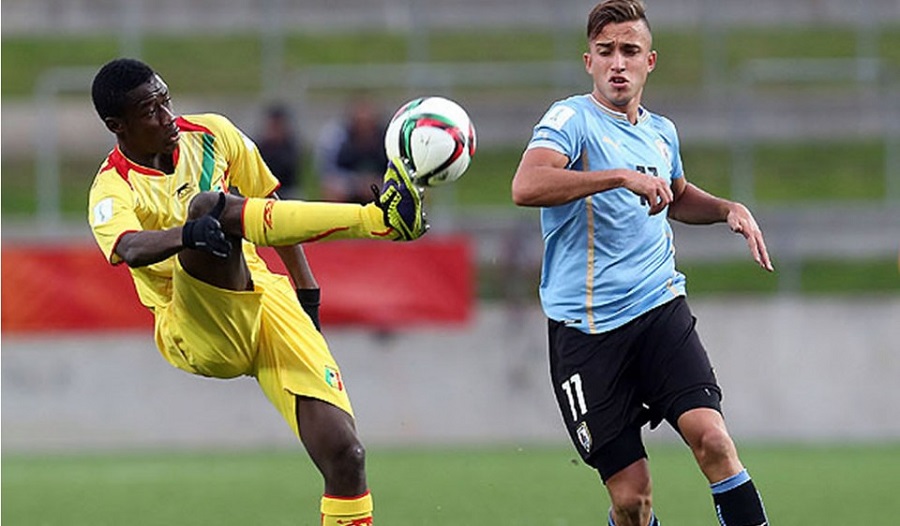
Fresh off their opening win against Serbia, The Lil’ Celestes faced Mexico in their second game of the 2015 U20 World Cup, but the Celestes could not replicate the earlier success, falling by a score of 2-1. The game was scoreless until the 70th minute, when Mexico took the lead after a silly giveaway by the Uruguayan defense. The Celestes tied it with 7 minutes to go on a putback by Mathías Suárez, but Mexico scored the game winner in added time on a fantastic free kick. This result, coupled with Serbia’s win against Mali, left all 4 teams tied at 3 points apiece going into the last round of games.
Based on results from other groups, the Celestes knew that a tie in the last game would be enough to see them through to the knockoff round, and that’s exactly what they got against Mali. Franco Acosta opened the scoring in the 23rd minute, but Mali tied it just before halftime on an indirect free kick inside the penalty area (an awful call by the referee). Still, the 1-1 final score qualified both teams, with Uruguay taking second place by drawing of lots (they were even on every conceivable tiebreaker). Serbia won the group by beating Mexico, the only team in the group to go home. So Uruguay beat the group winner, lost to the last place team, and tied the remaining game. Their reward for coming in second place is a meeting with Group E winner Brazil (of course). Hey, it could be worse, they could be flying home early like Argentina.
The Final Countdown
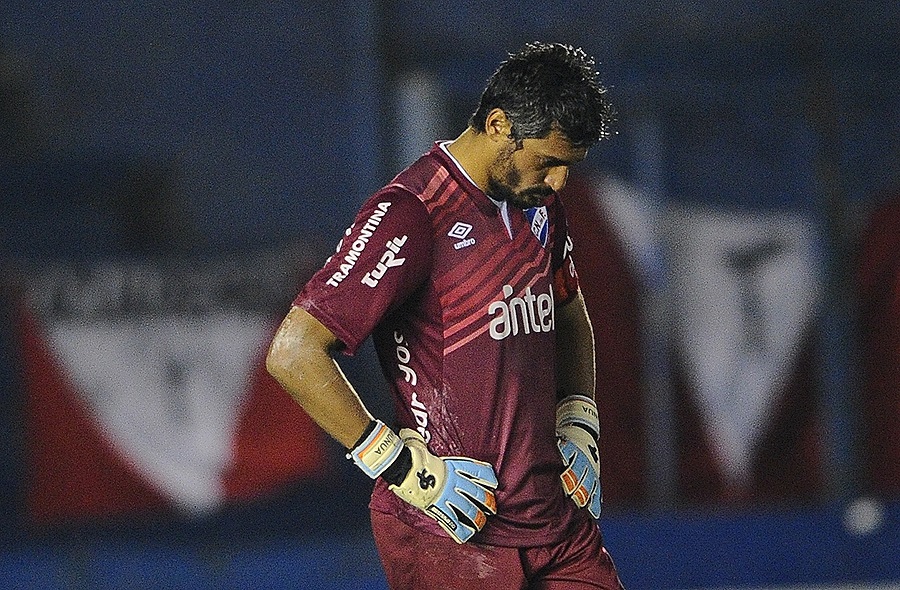
The Clausura tournament is over, fans! Peñarol were crowned champions after a dramatic 2-2 tie with Racing. The Manyas were up by two goals until late in the game, but the Academia staged a furious rally to tie the game. It wasn’t enough for them, as they will miss out on next year’s international competition because of goal differential. It also wasn’t enough for River Plate; the Darseneros could have taken the title with a win over Danubio, but lost 2-0. Meanwhile, Nacional was still worrying their fans, losing to already-relegated Tacuarembó in a wild 3-2 game. Iván Alonso opened the scoring with his 7th Clausura goal, good enough for third place in the scorer’s table (he was also the overall season top scorer with 22 scores), but Tacuarembó scored two goals in the second half to take the lead. Gonzalo Bueno tied it with 5 minutes left, but a horrendous defensive play by Nacional’s backline led to the game winner just two minutes later. Nacional will now face Peñarol this Sunday ins a single game semifinal. If the Tricolores win, they will be crowned champions because they finished first in the overall table. If the Manyas are victorious, there will be a two leg final to decide the national champion. I’m not gonna lie to you, fans, the performances of the last few weeks are making El Bolso very nervous about Nacional’s championship chances. We’ll see what happens this weekend.
Meanwhile, El Tanque Sisley thrashed Atenas on the road 4-2 to keep themselves in the top flight and send the boys from San Carlos down to the second division. There was some confusion about standings heading into this game, as Danubio had appealed last week’s loss to El Tanque because of the use of a player whose contract had already ended, but the win means Atenas will go down no matter what happens on that front. As far as international competition, Nacional and Peñarol go into the Libertadores group stage, with River Plate clinching a spot in the Libertadores playoff (the first time the Darseneros have made it into the continent’s most prestigious club tournament!). Whichever team wins the final will also play in the Copa Sudamericana, along with Defensor sporting, Danubio, and Juventud, which barely sneaked past Racing. It was a sad ending to a great year for Racing (which led the Apertura well into the last few weeks but lost their coach during the Summer break and collapsed), and a historic occasion for Juventud, which will make its international debut later this year.
History will also be made next season, as the second division playoff tournament is down to two teams that have never played in the top flight. Boston River and Villa Teresa play this coming weekend for the right to join Liverpool (no, not that one) and Plaza Colonia among the big boys. The teams tied 1-1 in the first leg, so the series is wide open. One of those two teams will finally get to the big time.
One More Double
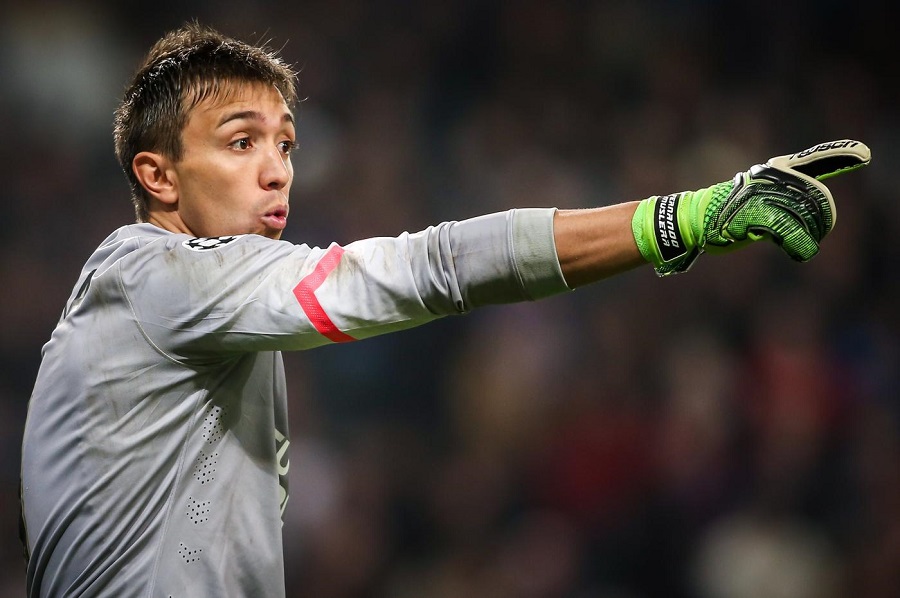
Add Fernando Muslera’s name to the list of Uruguayans winning league-cup doubles in Europe this season. The Uruguayan keepers’ current team, Galatasaray, beat Bursaspor 3-2 this past Wednesday to win the Turkish Cup, with Muslera starting in goal. That wasn’t the end of the good news for the Celeste stalwart: reports say that Manchester United, which is expected to lose David De Gea to Real Madrid during this next transfer window, has settled on the young Uruguayan as their next starting keeper. It looks like the big time has finally come a-knocking for the two-time World Cup starter and Copa America champion. Congratulations!
And that is all for this week, fans. The good people at Pasión Tricolor were apparently too depressed to post their weekly video, so we’ll have to do without this week. Hopefully we’ll have a brand new one for next Sunday… See you next time!
- The Charrúa Report: On the Right Foot - March 14, 2017
- The Charrúa Report: Campeones! - February 14, 2017
- The Charrúa Report: 48 Is Enough - January 11, 2017
- The Charrúa Report: Nico and the Sounders - December 14, 2016
- The Charrúa Report: King of the Single Rounders - December 12, 2016
- The Charrúa Report: Senseless - December 6, 2016
- The Charrúa Report: The Bum’s Rush - November 28, 2016
- The Charrúa Report: A Bump in the Road - November 16, 2016
- The Charrúa Report: Is It Priceline Time? - November 12, 2016
- The Charrúa Report: Closer to Fine - October 13, 2016

